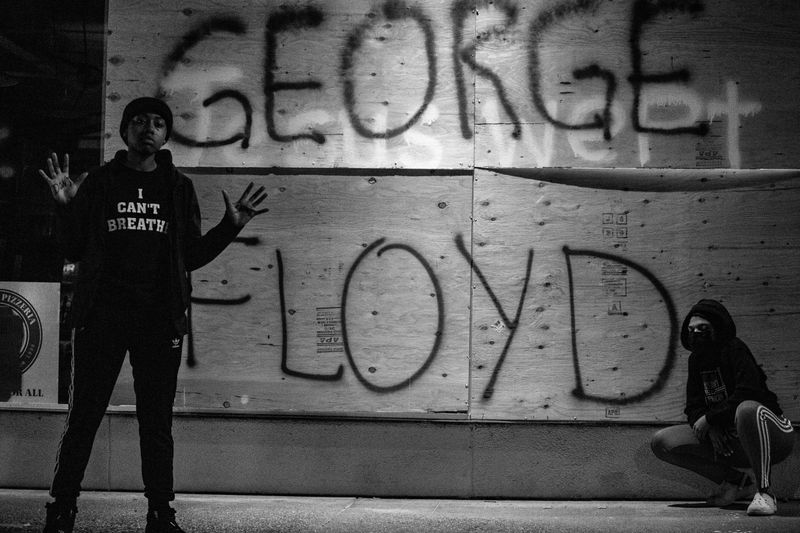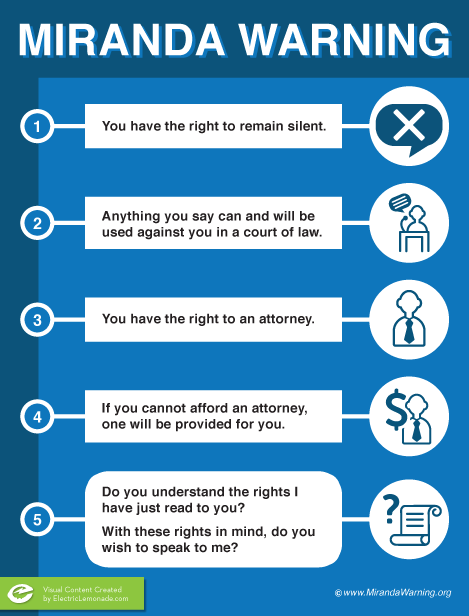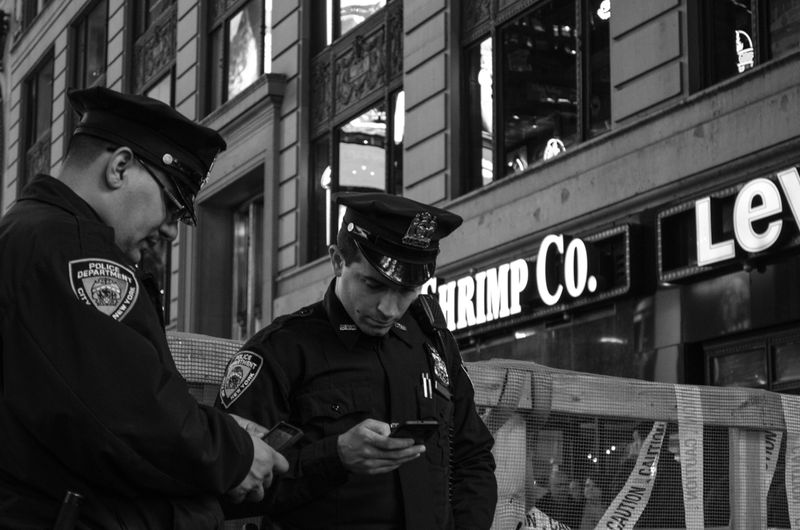As we're confronted with case after case of police violence, it's clear that systemic racism is at the root of each individual tragedy.
 Photo by Tito Texidor III on Unsplash
Photo by Tito Texidor III on UnsplashKnowledge alone isn't enough to change our systems, undo hundreds of years of systemic racism, or protect minorities from a racist (or unconsciously biased) officer. But awareness is the first step to action - even if that's just being more prepared for a potential police interaction.
Spend three minutes right now to learn about a Miranda warning to keep yourself safe.
Miranda Warning
The Miranda Warning is customarily said by police to a criminal suspect in police custody to advise them of their Miranda Rights.
The Miranda Warning is meant to protect criminal suspects from self-incrimination under the Fifth Amendment.

What Do I Need To Know About A Miranda Warning?
Police are only required to Mirandize (state the Miranda Warning) a suspect if they are questioning the suspect in the context of a criminal investigation.
If there is concern about public safety, questions may be asked without the suspect being Mirandized. In this circumstance, any evidence gathered may be used against the suspect.
Someone who is arrested must still answer basic questions regarding their name, age, address, etc.
A suspect may be searched in order to protect the police officer.
A confession given before the suspect has been Mirandized can be used as evidence in court.
If you have waived your Miranda Rights, (meaning you are speaking freely to police without an attorney present,) you have the right to change your mind at any time. You may 'plead the fifth,' which means you no longer wish to answer questions or you wish to have an attorney present.
 Photo by Matthias Kinsella on Unsplash
Photo by Matthias Kinsella on UnsplashYour Rights
YOU HAVE THE RIGHT TO REMAIN SILENT.
You do not have to respond to any questions a police officer asks you regarding criminal activity, either in court or in police custody.
YOU HAVE THE RIGHT TO AN ATTORNEY.
If you are being interrogated by police, you may ask for an attorney. If you cannot afford an attorney, one will be provided for you. Police cannot ask you any further questions without the presence of an attorney. You should be very direct in your request - "I want an attorney. I will not talk until I have an attorney."
Take Action
Awareness might only be step one. But we can't get to step two without it.
Wonder what happens (or is supposed to happen) if you're arrested? Learn about the bail process.
Your feedback matters to us.
This Byte helped me better understand the topic.
